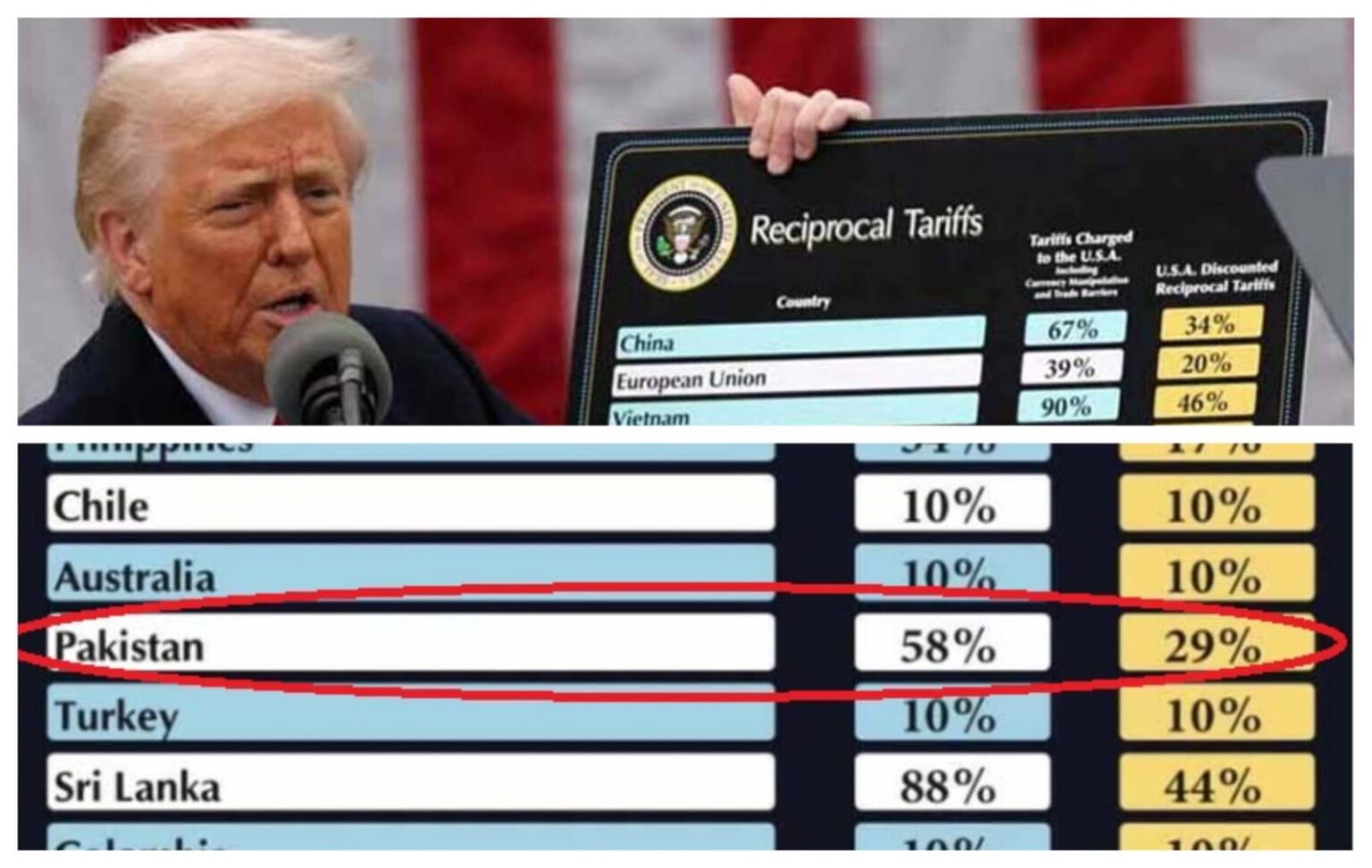ISLAMABAD: The recently proposed tariff hikes on Pakistani exports by former US President Donald Trump—though temporarily paused—could have severe consequences for Pakistan’s economy, particularly its key export sectors, according to a study by a government-affiliated research institute.
The Pakistan Institute of Development Economics (PIDE) warned in a detailed policy brief that the planned reciprocal tariffs from the US could significantly disrupt Pakistan’s export earnings, lead to widespread job losses, and contribute to broader economic instability.
Authored by economists Dr. Muhammad Zeshan, Dr. Shujaat Farooq, and Dr. Usman Qadir, the report titled “Impact of Unilateral Tariff Increase by United States on Pakistani Exports” evaluated the implications of a 29% additional tariff imposed on Pakistani goods entering the US market.
Combined with the current 8.6% Most Favoured Nation (MFN) duty, the total tariff could climb to 37.6%.
Such a sharp increase is projected to reduce Pakistan’s exports to the US by 20–25%, equating to a potential annual loss of $1.1–1.4 billion.
The textile industry is identified as the most vulnerable, facing the highest risk from this policy shift.
In fiscal year 2024, Pakistan’s exports to the United States totaled $5.3 billion, making the US its top export destination. Textiles and garments made up a major share of this, already subjected to import duties of up to 17%.
If these new tariffs take effect, Pakistan’s products may lose their competitive edge in the US, opening the door for regional rivals such as India and Bangladesh to take over lost market share.
PIDE Study
PIDE’s analysis highlights that the negative effects will not be limited to textiles alone.
Large exporters like Nishat Mills and Interloop could be forced to scale down operations, potentially impacting over half a million jobs.
Non-textile goods such as leather products, rice, surgical tools, and sports equipment are also expected to suffer.
Despite these challenges, the report frames the situation as a critical opportunity for reform. PIDE recommends that Pakistan take immediate diplomatic steps to mitigate damage and maintain strong trade ties with the United States.
The think tank pointed out that in 2024, the US exported around $181 million worth of cotton to Pakistan, creating interdependence between the two economies.
Pakistan could use this as a bargaining chip in negotiations. Reducing import duties on US goods like machinery, petroleum, or scrap metals may also help open dialogue.
Encouraging local manufacturers to incorporate US-sourced materials like cotton and yarn could strengthen trade relations and possibly secure exemptions.
Read More: China Imposes Back 125% Tariffs on US Goods, No Further Hike
On a strategic level, the report emphasizes the importance of expanding both the range of export products and destination markets.
Countries and regions like the European Union, China, Southeast Asia, Africa, and the Middle East offer promising opportunities in sectors such as information technology, halal-certified foods, processed edibles, and sporting goods.
PIDE also suggests that Pakistan should work on reducing production and transport costs, simplifying trade-related regulations, and embracing technology and innovation to boost competitiveness.
Additionally, developing a long-term trade strategy with the US, centered around collaboration in technology, energy, agriculture, and manufacturing, is seen as crucial.
From an international trade law perspective, the report notes that the proposed US tariffs may surpass the 3.4% bound ceiling set by the World Trade Organization (WTO), potentially violating global trade rules.
However, financial constraints may limit Pakistan’s ability to pursue legal action through WTO forums. More broadly, the unilateral tariffs overlook the interconnected nature of modern global supply chains.
A clear example is the textile production loop between the two nations—US cotton feeds Pakistani mills, which then export finished clothing back to the US. Disrupting this cycle would harm both economies.
Also Read: US Tariffs Likely to Push iPhone Prices Higher
“The challenges are significant, but they also present a rare opportunity for Pakistan to realign its trade strategy and strengthen its global competitiveness,” the report concludes.
With timely diplomatic outreach, targeted reforms, and a push for market diversification, the report asserts that Pakistan can not only absorb the potential shock but emerge as a more adaptive and resilient trading nation.
